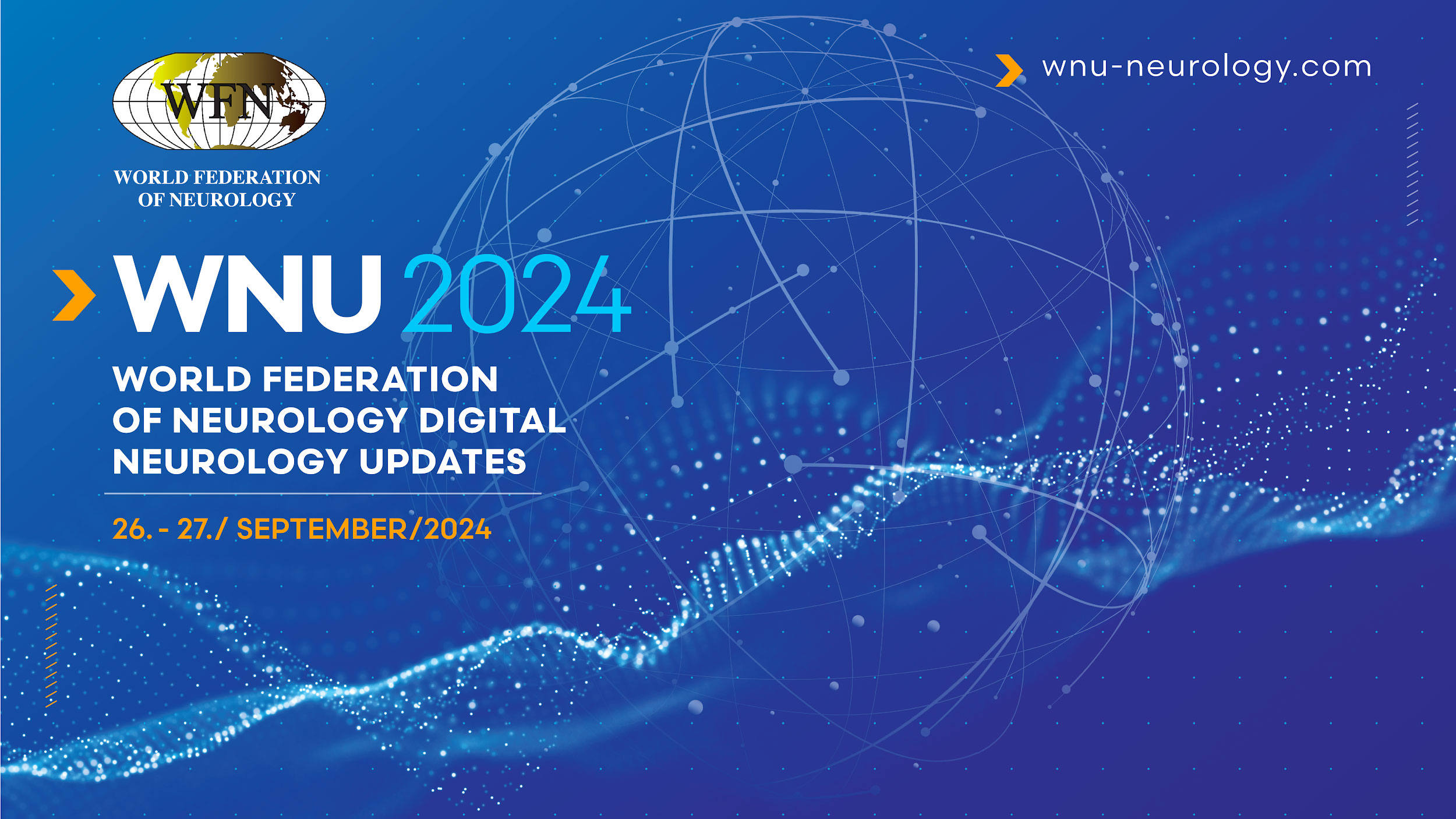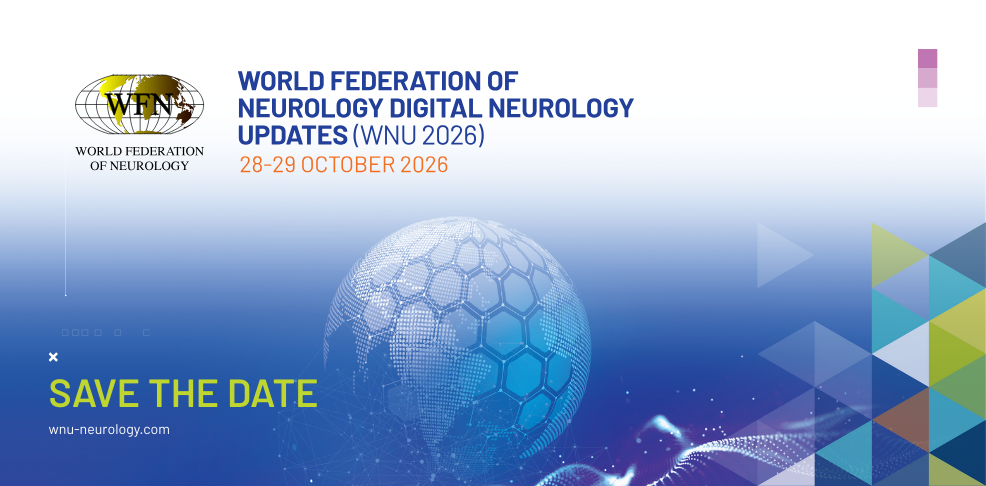WFN Digital Neurology Update (WNU 2026)
The World Federation of Neurology (WFN) Digital Neurology Updates (WNU 2026) will take place entire online 28-29 October 2026.
WNU is designed to transcend geographical and logistical barriers, making it accessible to neurologists, researchers, and healthcare professionals worldwide. WFN are committed to making WNU accessible to all, including low and middle-income countries, ensuring that as many people as possible can benefit from the latest neurological insights and advancements.
The meeting offers a unique opportunity to access the latest global perspectives in neurology – all from the convenience of your own screen.
WNU 2024 Videos on Demand
The first WFN Neurology Update (WNU) 2024 took place on 26-27 September 2024 as a virtual 2-day meeting. The meeting offered attendees the latest updates in critical areas such as Epilepsy, Dementia, Multiple Sclerosis, Movement Disorders, Stroke, Headache, and neuromuscular diseases. Being virtual, the sessions can be accessed on request.
This commitment for a neurology update is new, and serves to fill the gap between the biennial World Congresses of Neurology (WCNs). As at the WCN, the WFN will continue virtual access to our meetings, as the reach of the WFN meetings has increased and reached 132 countries at the most recent WCN XXVII, which was both in-person and virtual.
Read more about the WFN Digital Neurology Update ⧉









